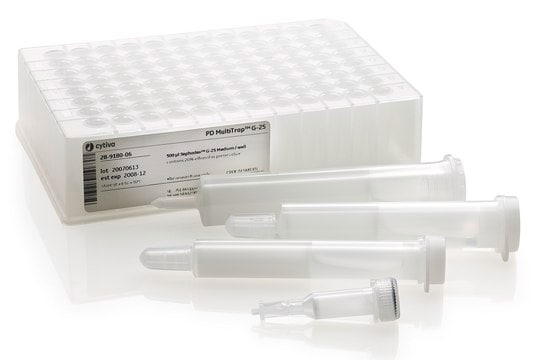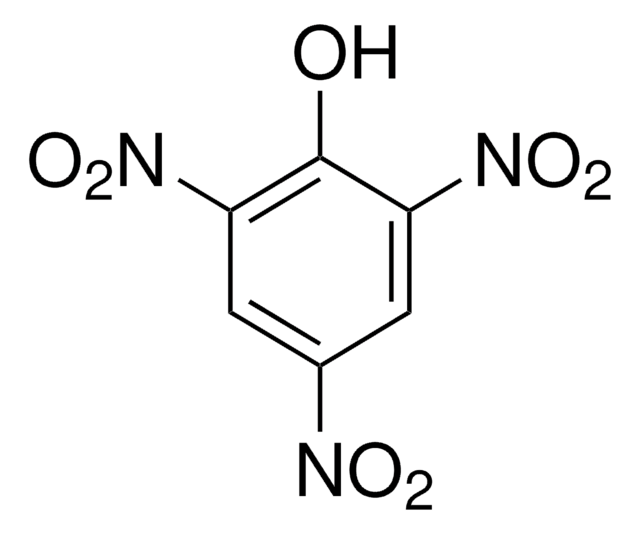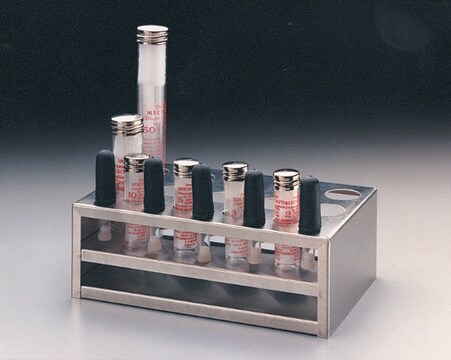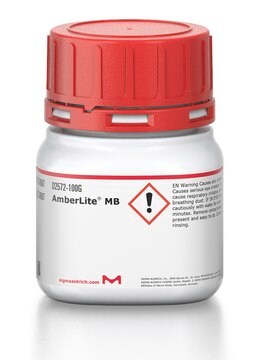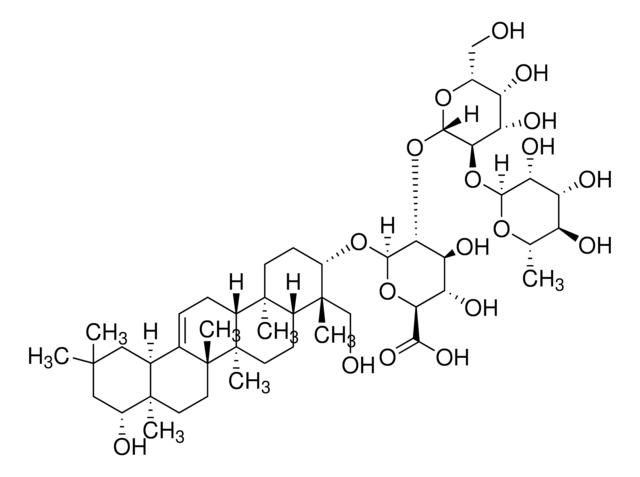P2297
Picrylsulfonic acid solution
5 % (w/v) in H2O, BioReagent, suitable for determination of primary amines
Synonym(s):
2,4,6-Trinitrobenzenesulfonic acid solution, TNBS
About This Item
Recommended Products
grade
reagent
product line
BioReagent
concentration
5 % (w/v) in H2O
suitability
suitable for determination of primary amines
storage temp.
2-8°C
SMILES string
OS(=O)(=O)c1c(cc(cc1[N+]([O-])=O)[N+]([O-])=O)[N+]([O-])=O
InChI
1S/C6H3N3O9S/c10-7(11)3-1-4(8(12)13)6(19(16,17)18)5(2-3)9(14)15/h1-2H,(H,16,17,18)
InChI key
NHJVRSWLHSJWIN-UHFFFAOYSA-N
Looking for similar products? Visit Product Comparison Guide
Related Categories
General description
Application
- to assess the efficiency of carboxymethyl lysine (CML) modifications of exposed primary amines
- to incubate zona intact bovine embryos for the differential staining of blastocysts
- to induce irritable bowel syndrome (IBS) in mice and to study its effects on Clostridium butyricum
related product
signalword
Danger
hcodes
Hazard Classifications
Eye Dam. 1 - Skin Corr. 1B - Skin Sens. 1
Storage Class
8B - Non-combustible corrosive hazardous materials
wgk_germany
WGK 3
flash_point_f
Not applicable
flash_point_c
Not applicable
Choose from one of the most recent versions:
Already Own This Product?
Find documentation for the products that you have recently purchased in the Document Library.
Customers Also Viewed
Our team of scientists has experience in all areas of research including Life Science, Material Science, Chemical Synthesis, Chromatography, Analytical and many others.
Contact Technical Service
